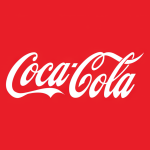Welcome to our dedicated page for Coca Cola Co news (Ticker: KO), a resource for investors and traders seeking the latest updates and insights on Coca Cola Co stock.
The Coca-Cola Company (KO) news hub provides investors and stakeholders with authoritative updates on this global beverage leader. Track official press releases, financial disclosures, and strategic developments from the world's largest nonalcoholic drink producer.
This centralized resource features verified information about earnings reports, product innovations, sustainability initiatives, and bottling partnerships. Access timely updates on KO's operations across 200+ countries, including market expansions, leadership changes, and responses to evolving consumer trends.
Our curated news collection enables informed analysis of Coca-Cola's diversified portfolio strategy and global distribution network. Monitor developments across key categories including sparkling soft drinks, hydration products, and emerging beverage segments.
Bookmark this page for direct access to KO's latest regulatory filings, dividend announcements, and partnership updates. Combine historical context with real-time developments to better understand this iconic company's market position.


